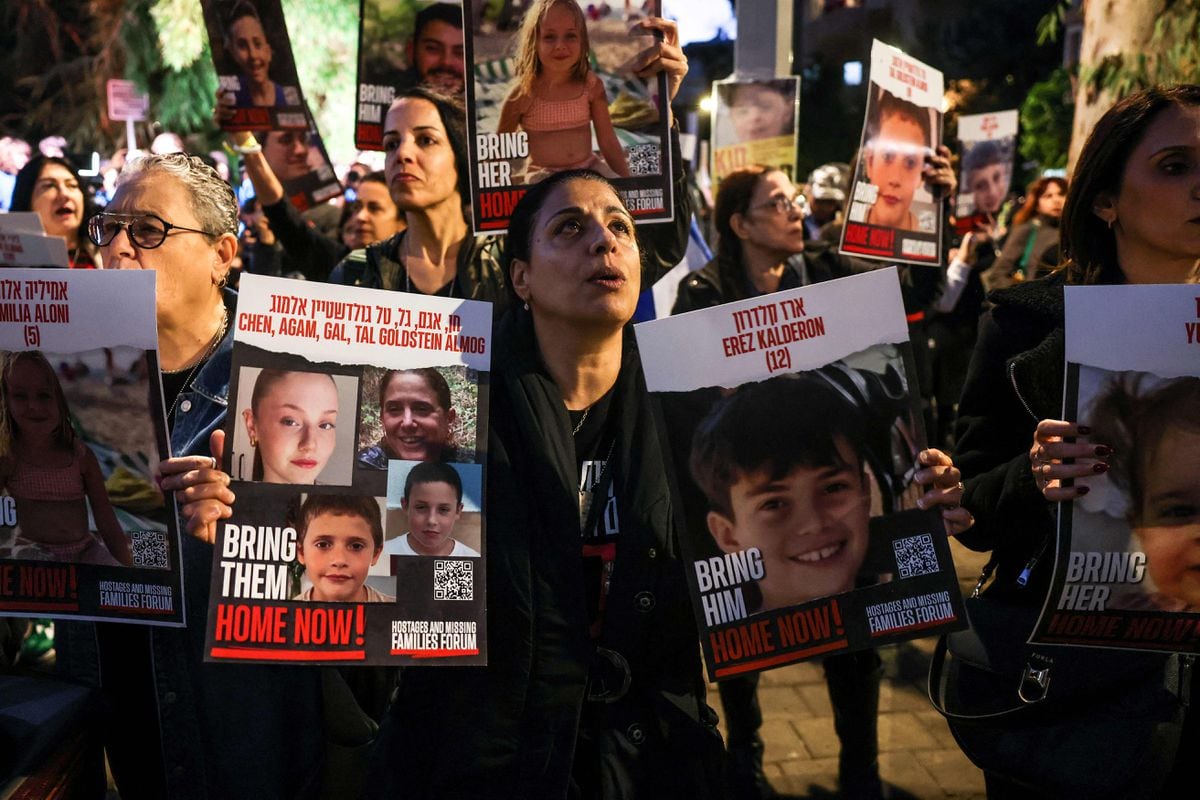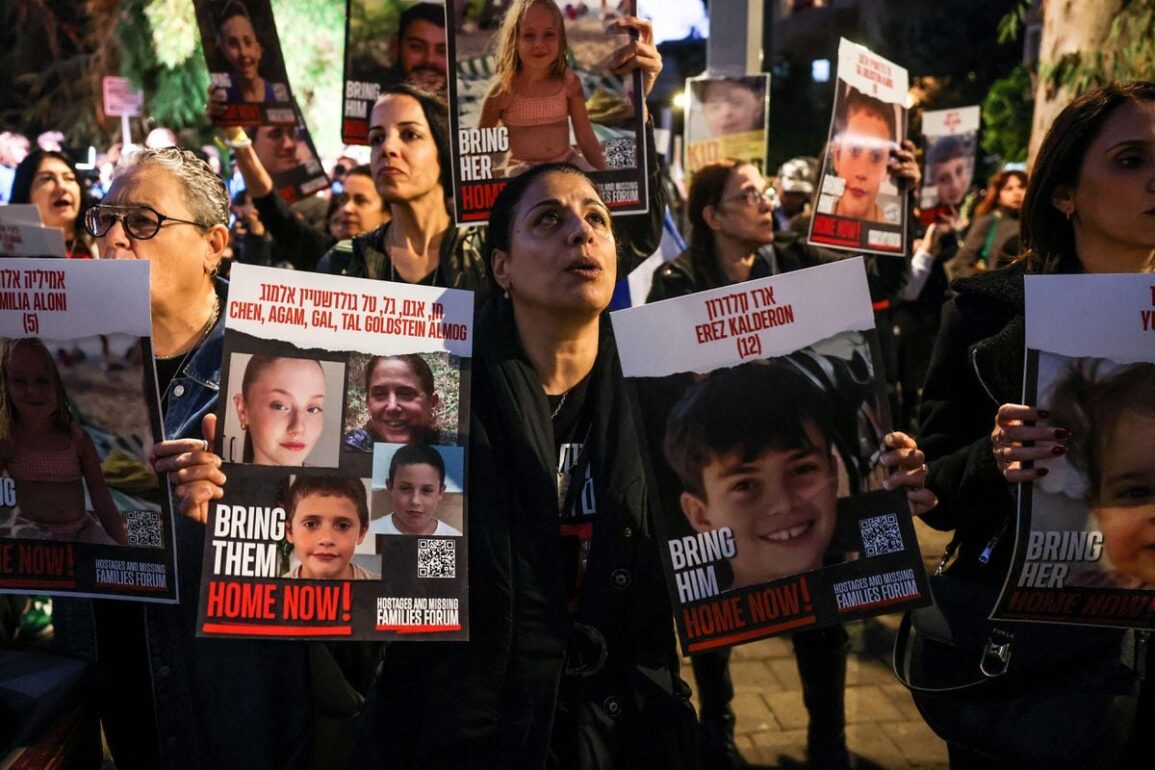
Israel and Hamas, with the mediation of Qatar, are closing the final details of the first truce in the 46 days of war, according to sources from the parties involved. The agreement, which covers several days of ceasefire, will allow more humanitarian aid to enter Gaza and an exchange of hostages for Palestinian prisoners in Israeli jails. This operation would affect both women and minors on both sides.
This much is clear from a statement that the political leader of Hamas, Ismail Haniya, sent to the news agency Reuters and from the statements that another member of the organization, Issat el Reshiq, made to the Qatari network Al Jazeera. “We are the closest we have ever been to reaching an agreement,” the Qatari Foreign Ministry spokesman Majed al-Ansari told Al Jazeera. The details of how many days hostilities will stop for, or how many hostages and prisoners will be released, are expected to be made public by the authorities of that country. Even Israel’s Prime Minister Benjamin Netanyahu, who has avoided the subject, now acknowledges some “progress.”
“I hope there will be good news soon,” he told a group of reservists, according to a statement released by his office.
The negotiations, in which Egypt and the United States are also participating, have been evolving for weeks and the parties have been close to reaching an agreement several times, it emerged in recent days. But this is the first time that Hamas has been officially so explicit.
On October 7, Hamas carried out the largest attack suffered by Israel in its 75-year history, which left some 1,200 people dead and around 240 taken hostage to Gaza, according to Israeli authorities. Israel’s reaction has left more than 13,000 people dead in the Strip, as well as around 200 dead and almost 3,000 arrested in the West Bank.
The agreement shows that Netanyahu cannot resolve the hostage crisis through weapons alone, and that he has to “pay a price,” said Qadura Fares, the minister in charge of prisoners at the Palestinian National Authority during an interview last Friday with EL PAÍS. Fares, who spent 14 years in Israeli prisons, acknowledged that he does not have details of the negotiations, but did not doubt that “the fate of the Palestinian prisoners is also on the negotiating table.” He was referring to the fact that, in parallel with the release of hostages from Gaza, there would be an agreement to release a number of prisoners from Israeli prisons, especially women and children. The release of Palestinian prisoners is a demand that Hamas has maintained since the beginning of the war, the minister recalled.
The president of the International Committee of the Red Cross (ICRC), Mirjana Spoljaric, met on Monday in Qatar with Haniya, as the humanitarian organization, with decades of experience in resolving this type of crisis, acknowledged in a statement. In addition to the “immediate” release of the hostages, the ICRC is demanding access to the hostages so that they can be treated and communicate with their families. The ICRC insists that it is not participating in the negotiations but that, as on previous occasions in the current war, its teams are willing to facilitate any releases that are agreed upon.
So far, Hamas has only released four women. Meanwhile, the spokesman for the armed wing of the militia, Abu Obeida, announced in early November that more than 60 of the 240 hostages have died in Gaza as a result of the Israeli airstrikes and that, in 23 cases, it was impossible to even recover the bodies.
Since the current conflict began on October 7, there are already more than 2,700 detainees in the West Bank and East Jerusalem, so Israeli prisons have gone from having 5,300 Palestinian inmates to around 8,000 in recent weeks, of which around 300 are minors and 70 are women, according to Minister Fares. In addition, there are around 1,000 Gazans whose whereabouts are unknown, who had a work permit in Israel and who were caught outside the Strip when the war broke out.
Qadura Fares stated in his interview that Netanyahu is under strong pressure and “every hour is important for him.” The Israeli prime minister is also weathering criticism from the families of the hostages and, on the other hand, getting pressure from the most nationalist and far right wing of his government, which demands sustained action with fire and sword in the Strip.
So far, in addition to causing more than 13,000 deaths and reducing Gaza to rubble, the military deployed as occupation forces in the Strip have managed to capture more than 300 “terrorists” who have been transferred to Israeli territory, where they are being interrogated, the army reported on Monday. They join the several hundred more who were detained on October 7 and in subsequent days around Gaza and who are also being interrogated.
Speaking from the West Bank, Minister Fares does not take his eyes off what is happening in Gaza despite the fact that the PNA government has little control over the territory, which is the feud of Hamas. During the interview he is dressed for work, standing next to his olive trees, but he asks for a few moments to change for the photo session. Then he reflects once again on the war in the Mediterranean enclave: “If the price of a free Palestine is killing children like they are being killed in Gaza, I prefer to continue like this for another 50 years. I don’t want to save my country that way.”
Sign up for our weekly newsletter to get more English-language news coverage from EL PAÍS USA Edition
This post was originally published on this site be sure to check out more of their content.







